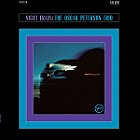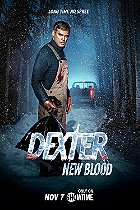From back cover of LP:
“The past is hidden somewhere outside the realm, beyond the reach of the intellect,” wrote Proust, “in some material object which we do not suspect.” One of the most potent of all these material objects is a sheet of printed music and the sounds it conveys, as Proust and countless other writers have acknowledged. That is why it is a brave man indeed who would make an album composed of material which he knows belongs in the past consiousness of those likely to listen to it. The musician who does this will be grappling with all kinds of extra-musical intangibles, because when it comes to the past, we are all conservatives at heart.
Oscar Peterson’s programme in this album deliberately challenges the russet glow of fond reminiscence and, it seems to me, challenges it triumphantly. Each of the themes he plays has its aura in the jazz past, and, more significant still, has upon it the indelible stamp of previous definitive versions. No matter. Peterson overcomes this terrifying handicap because the force of his own personality is as strong, sometimes stronger, than the originals. Even when he takes a piece like Night Train, tailored for the concerted ensemble of a big band, he gives the impression that the trio is the best conceivable setting for the tune. Indeed, there are more overtones of orchestral richness in his Night Train than in most of the big band versions I can remember.
If the dominant emotion of the album is Pastness, its dominant form is the Blues in all its shades of intensity, from the leisurely ease of Things Ain’t What They Used to Be to the brilliant sustained pace of Honey Dripper. The sources are varied but the. underlying roots identical, the earthy candour of a form that has served all periods and styles of jazz with equal loyalty. In a way, the Blues separates the men from the boys in jazz, for no amount of technical trickery or experimental precosity can shield an inadequate talent from its demands. The first time I ever saw Peterson perform, in London in 1953, he opened with a medium-tempo blues, and I have never forgotten the impact he made, an impact repeated time and again in this collection.
There is a virility about the greatest jazz which is immediately recognizable, and it is this quality in his work which contributes so vastly to Peterson’s position as the outstanding pianist of his generation. It asserts itself at the crucial moments with unfailing constancy. After the theme statement of Band Call, when Peterson moves into his improvisation, his relaxation is quite sublime. There are hints of limitless untapped power and dazzling melodic invention, and as the solo gathers impetus, it becomes clear that the player is a mature master of his art.
In Honey Dripper, at the point where Ed Thigpen increases the rhythmic pressure, and above all at that moment in Moten Swing where, having stated the theme, Peterson takes a two-bar break into his solo, the same effect is created, of power wedded to relaxation, of the curious duality of mood that jazz creates, the serenity and the intensity, with the evident enjoyment of the musician serving as the emotional springboard for the entire performance.
The Blues in its starkest form utilizes a minimal harmonic vocabulary, which is why to leaven a blues set with one or two more elaborately constructed pieces is often an excellent idea. In the choice of one ballad in particular, Peterson flies yet again in the face of convention, of tradition, of nostalgia and the sensibilities of jazzlovers with long memories. It is hardly possible to hear the first few bars of I Got It Bad and That Ain’t Good without plunging back twenty years and savouring in the mind once again the lilting grace of Ivie Anderson and the fragility of Johnny Hodges’ alto playing on the original Ellington recording. Peterson of course makes no attempt to echo Hodges or Ivie Anderson or anybody else, and achieves a version which already numbers among its admirers Duke Ellington himself.
With Ray Brown and Ed Thigpen, Peterson has now arrived at what is probably the best musical setting for his gifts that he has ever enjoyed. That break in Moten Swing which typifies the whole album, is a telling demonstration of the importance to musicians of group thinking and feeling. Brown and Thigpen await poised, for the short break to end. When it does, they both re-enter with perfect timing and an exact reading of the mood of that precise moment. It is this kind of expertise which make the Peterson Trio one of the most enlightening experiences that jazz today has to offer.
BENNY GREEN
Author, THE RELUCTANT ART (Horizon Press)
Night Train review
 Posted : 2 years, 7 months ago on 6 June 2023 05:02
(A review of Night Train)
Posted : 2 years, 7 months ago on 6 June 2023 05:02
(A review of Night Train) 0 comments, Reply to this entry
0 comments, Reply to this entry
The Night Agent review
 Posted : 2 years, 8 months ago on 8 May 2023 11:55
(A review of The Night Agent)
Posted : 2 years, 8 months ago on 8 May 2023 11:55
(A review of The Night Agent)This Netflix original—very reminiscent of "24"—won't be nominated for any Emmys, but packs in plenty of suspense as the company waits to see if they can provide any reason for subscribers to stay after Stranger Things 5.
Acting, direction, dialogue are aweful. Stilted, halting line reads. Filled with cliche. Hong Chau, as White House Chief-of-Staff Diane Farr, comes off by far the worst. Is she a decent actress? Perhaps, but if she is, then the performances rendered in this series' 10 episodes speak very poorly of the direction. The main character of Peter Sutherland (of course a reference to "24") is ably played by Gabriel Basso: though he is given little to work with, he achieves a screen presence and charisma crucial to the series.
A diverse cast of five directors tackle two episodes each; a few with lengthy, but not very promising resumés (Adam Arkin being the arguable exception). Standard dramatic scenes often use two or three visual approaches in the same scene. Examples being a very composed, formalist shot punched into a back-and-forth dialog scene with kinetic camera work; or two different over-the-shoulder shots from the same perspective but with slightly different angles, etc.
Still, many of the crucial action or stunt sequences (mainly shoot outs) are handled pretty well. While the plot aspects dealing with national security details are a tough sell,"Night Agent" manages to be compelling as the conspiracy plot (inherited from a novel by Matthew Quirk) unravels. The is the one saving grace for the series—actually, one of two: the faces of the franchise, Gabriel Basso and Luciane Buchanan, are likeable leads and are suitable for much better material.
Acting, direction, dialogue are aweful. Stilted, halting line reads. Filled with cliche. Hong Chau, as White House Chief-of-Staff Diane Farr, comes off by far the worst. Is she a decent actress? Perhaps, but if she is, then the performances rendered in this series' 10 episodes speak very poorly of the direction. The main character of Peter Sutherland (of course a reference to "24") is ably played by Gabriel Basso: though he is given little to work with, he achieves a screen presence and charisma crucial to the series.
A diverse cast of five directors tackle two episodes each; a few with lengthy, but not very promising resumés (Adam Arkin being the arguable exception). Standard dramatic scenes often use two or three visual approaches in the same scene. Examples being a very composed, formalist shot punched into a back-and-forth dialog scene with kinetic camera work; or two different over-the-shoulder shots from the same perspective but with slightly different angles, etc.
Still, many of the crucial action or stunt sequences (mainly shoot outs) are handled pretty well. While the plot aspects dealing with national security details are a tough sell,"Night Agent" manages to be compelling as the conspiracy plot (inherited from a novel by Matthew Quirk) unravels. The is the one saving grace for the series—actually, one of two: the faces of the franchise, Gabriel Basso and Luciane Buchanan, are likeable leads and are suitable for much better material.
 0 comments, Reply to this entry
0 comments, Reply to this entry
Dexter: New Blood review
 Posted : 4 years, 2 months ago on 13 November 2021 02:10
(A review of Dexter: New Blood)
Posted : 4 years, 2 months ago on 13 November 2021 02:10
(A review of Dexter: New Blood)Only minutes in to the new Dexter mini-series on Showtime and we see some immediate indications that this is a 2021 production: Native American female police chief, wheelchair-bound double amputee co-worker at PD, openly gay boss at the store where Dexter works... Still, it's good to have the serial killer you can root for back in our living rooms.
 0 comments, Reply to this entry
0 comments, Reply to this entry
 Login
Login
 Home
Home 167 Lists
167 Lists 3 Reviews
3 Reviews Collections
Collections